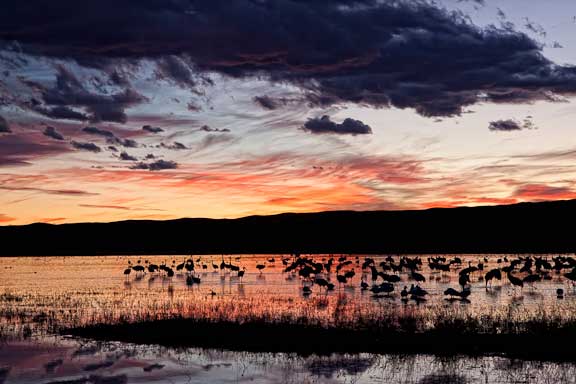
Since wings are a current topic in the marine world we thought this was a good segue to talk about Bosque del Apache.
Although we are swamped – still playing catch up with things related to the land – a combination of benign winter weather and the need to get out of the office gave us the excuse to drive six hours into central New Mexico to visit this amazing park. Carol Parker first turned us on to its wonders a few years ago.
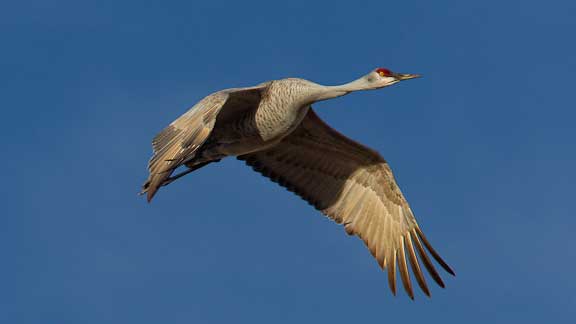
Bosque is the winter home of in excess of a hundred thousand sand hill cranes, ducks, geese, along with a few raptors to keep an eye on things.
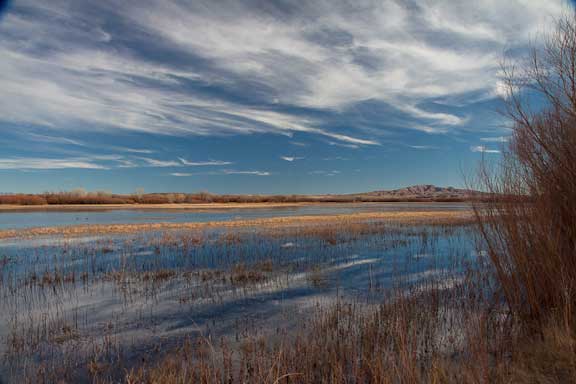
The scenery is exquisite, particularly striking in stark winter colors.
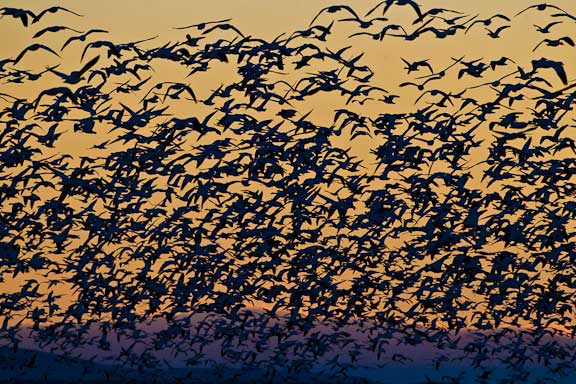
Viewing and photography is best just before sunup, and at the end of the day. When you see and hear several thousand birds lift off at once it is a breathtaking experience. Which is good as it takes your mind off the temperature – well below freezing.
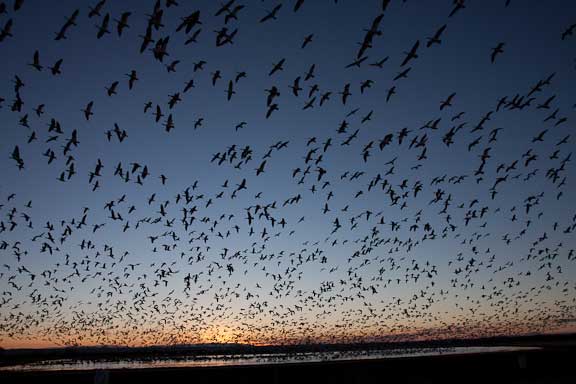
The low light levels and bird motion provide a technical photographic challenge, but one which is made easier with modern camera processors and auto bracketing.
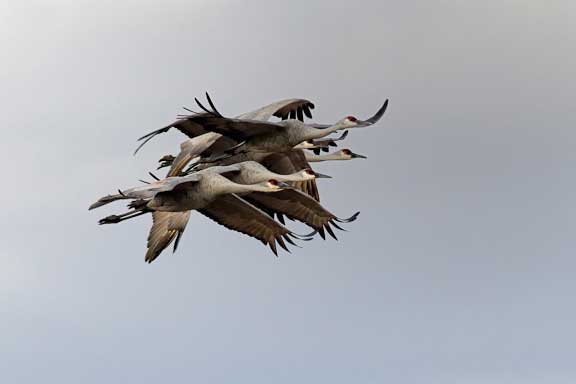
We shot 10,000+ frames in four days, of which 1500 were left after a quick sort. There is a slide show link at the end of this blog which will take you to 50 of our favorites.
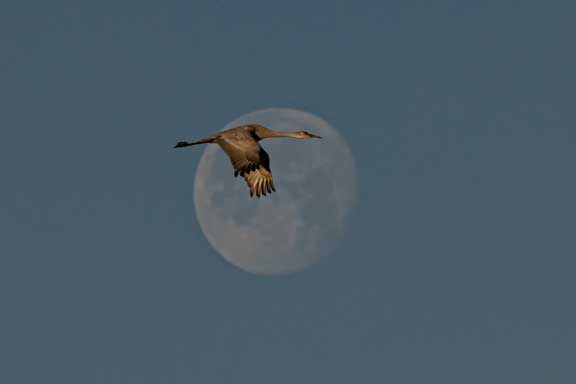
The morning moon provided an interesting backdrop, if a target would fly in front of it, far enough away as to be within the hyperfocal distance of the Canon 500F4 with a 1.4X extender.
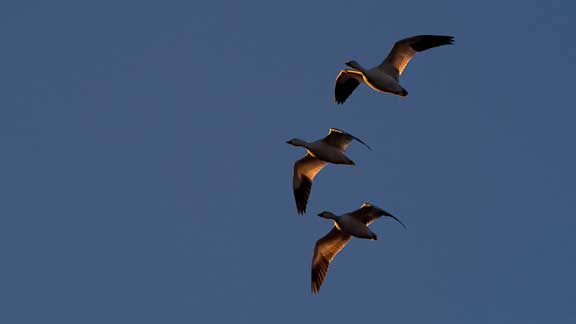
Most of the hard core photographers at Bosque – and there were a bunch – use two cameras. A long set up, like our 500+1.4, and a second body with a zoom lens for close in action. We used both a 100-400 and a 70-200 F2.8 zoom. The latter was particularly useful in low light. Landscapes were shot with a 17-55mm F2.8 lens, typically with a polarizing filter.
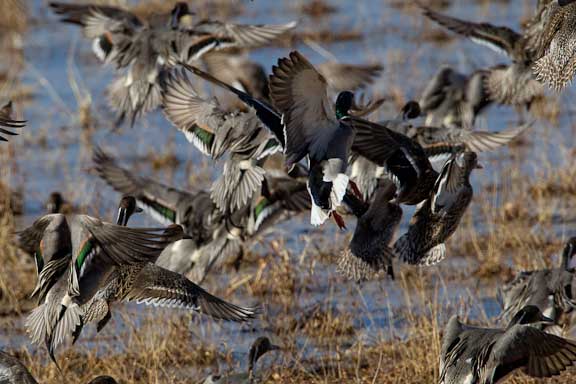
Between sun up/sundown shoots, the rest of the time is spent checking the feeding grounds. Occasionally a predator disturbs the gustatory endeavors and a stamped occurs. Chaos reigns for a few seconds, and then order is restored, and foraging resumes.
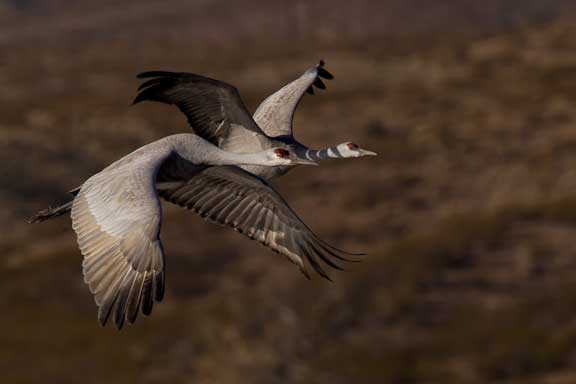
The cranes mate for life. Most of the flying is done in dual mode.
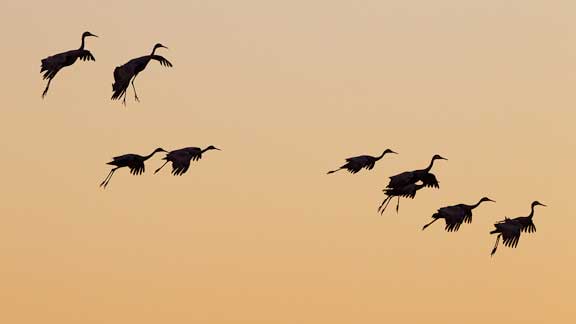
At the end of the day, with the sun set, the last of the cranes are flared in formation for landing.
Click here for the high res slide show.

January 25th, 2011 at 9:46 am
Hi Steve, great pics, as the others before of Spain. Do you ever intend to sell prints of them? Let me know if you will!
Regards, Reinhard Dieckhoff
January 25th, 2011 at 4:53 pm
Thanks for the kind words Reinhard:
We have not seriously thought about selling prints. But might at some point in the future to help defray the hardware cost.